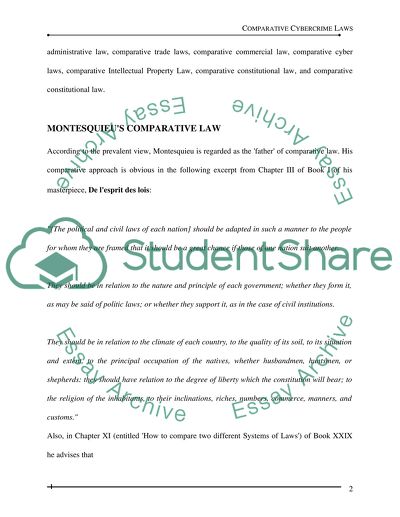Cite this document
(“Comparative Cybercrime Laws Research Paper Example | Topics and Well Written Essays - 3750 words”, n.d.)
Comparative Cybercrime Laws Research Paper Example | Topics and Well Written Essays - 3750 words. Retrieved from https://studentshare.org/law/1529068-comparative-law-essay
Comparative Cybercrime Laws Research Paper Example | Topics and Well Written Essays - 3750 words. Retrieved from https://studentshare.org/law/1529068-comparative-law-essay
(Comparative Cybercrime Laws Research Paper Example | Topics and Well Written Essays - 3750 Words)
Comparative Cybercrime Laws Research Paper Example | Topics and Well Written Essays - 3750 Words. https://studentshare.org/law/1529068-comparative-law-essay.
Comparative Cybercrime Laws Research Paper Example | Topics and Well Written Essays - 3750 Words. https://studentshare.org/law/1529068-comparative-law-essay.
“Comparative Cybercrime Laws Research Paper Example | Topics and Well Written Essays - 3750 Words”, n.d. https://studentshare.org/law/1529068-comparative-law-essay.


